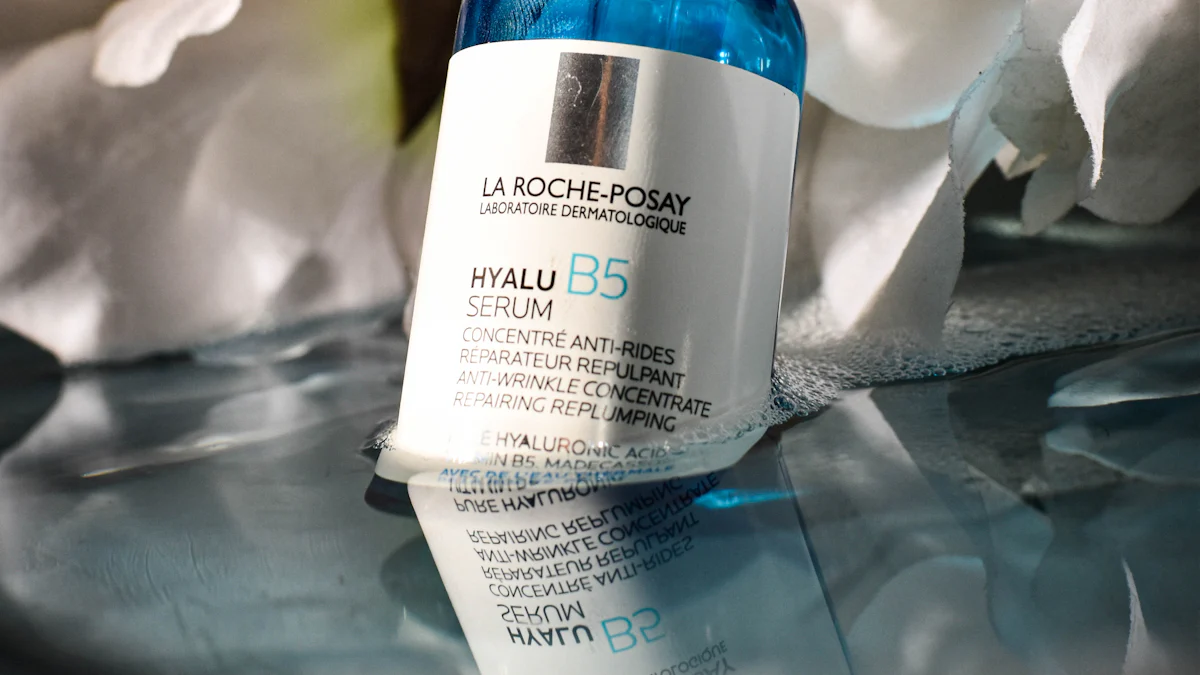
Your skin craves hydration to stay healthy, smooth, and radiant. That’s where hyaluronic acid steps in as a game-changer. This powerful molecule works like a magnet for moisture, drawing water into your skin and locking it in place. It doesn’t just hydrate; it boosts elasticity, making your skin feel plumper and more resilient. Whether your skin feels dry, dull, or tired, this ingredient transforms it by delivering the hydration it needs to thrive. With hyaluronic acid, you’re not just moisturizing—you’re elevating your entire skincare routine.
Key Takeaways
- Hyaluronic acid is a powerful hydrating ingredient that can hold up to 1,000 times its weight in water, making it essential for maintaining skin moisture.
- Incorporating hyaluronic acid into your skincare routine can enhance skin elasticity, reduce the appearance of fine lines, and promote a youthful glow.
- For optimal results, apply hyaluronic acid to damp skin and follow up with a moisturizer to lock in hydration.
- Hyaluronic acid is suitable for all skin types, including sensitive and oily skin, as it hydrates without clogging pores.
- Look for products that combine hyaluronic acid with other beneficial ingredients like niacinamide and peptides for enhanced skin health.
- Using a humidifier in dry environments can help maximize the effectiveness of hyaluronic acid and prevent potential dryness.
- Always follow product instructions and start with a patch test to ensure compatibility with your skin.
What Is Hyaluronic Acid and How Does It Hydrate the Skin?

Understanding Hyaluronic Acid
Hyaluronic acid is a molecule your body naturally produces. It plays a vital role in keeping your skin hydrated and healthy. Found in your skin, joints, and connective tissues, it acts like a sponge, holding onto water to keep these areas lubricated and moist. This natural ability makes it essential for maintaining your skin’s moisture levels.
When your skin has enough hyaluronic acid, it feels soft, smooth, and elastic. This molecule helps your skin stay plump and youthful by supporting its natural structure. As you age, your body produces less of it, which can lead to dryness and a loss of elasticity. That’s why adding it to your skincare routine can make such a difference.
The Science of Skin Hydration
Hyaluronic acid works by binding water molecules to your skin. It can hold up to 1,000 times its weight in water, making it one of the most effective hydrating ingredients available. When applied to your skin, it pulls moisture from the environment or deeper layers of your skin to the surface, giving you an instant boost of hydration.
This molecule also strengthens your skin barrier. A healthy barrier locks in moisture and protects your skin from irritants and pollutants. By supporting cellular health, hyaluronic acid ensures your skin stays resilient and balanced. It doesn’t just hydrate; it helps your skin function at its best.
How Hyaluronic Acid Works to Transform Skin Health
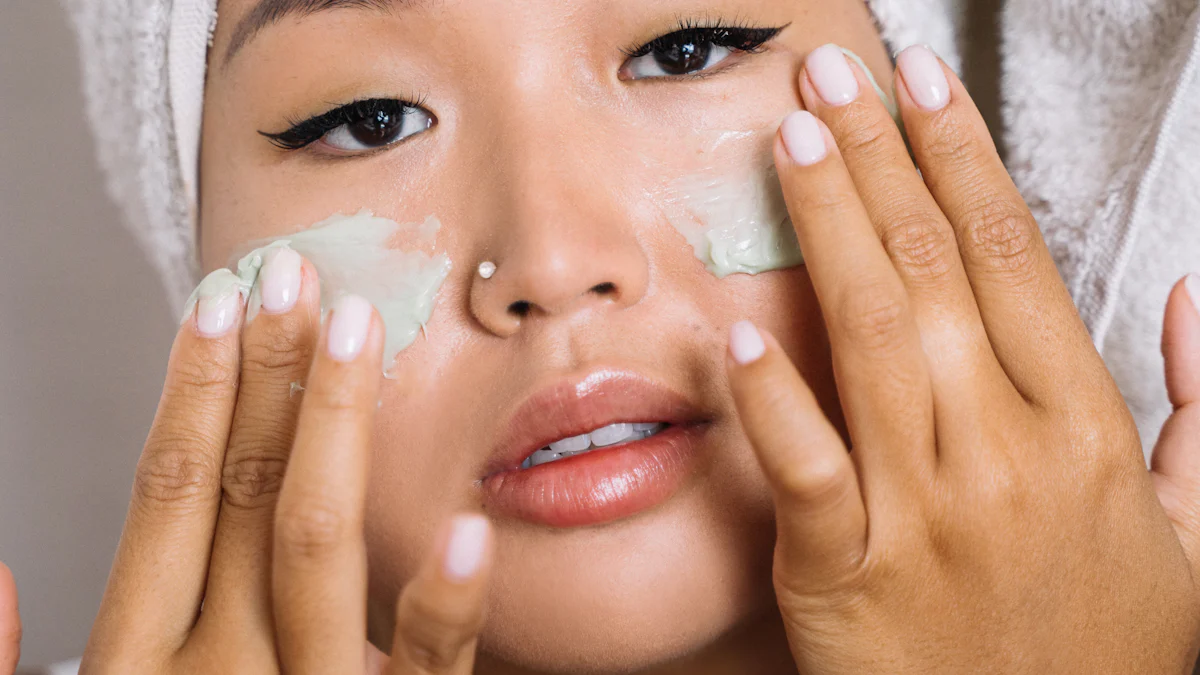
Attracting and Retaining Moisture
Hyaluronic acid has an incredible ability to hold water. It can retain up to 1,000 times its weight in moisture, making it one of the most effective hydrating ingredients you can use. When you apply it to your skin, it acts like a sponge, pulling water into the surface layers. This process keeps your skin hydrated throughout the day.
You’ll notice that this hydration works for all skin types. Whether your skin is dry, oily, or somewhere in between, hyaluronic acid adapts to your needs. It provides long-lasting moisture without feeling heavy or greasy. This makes it a go-to ingredient for anyone looking to improve their skin’s hydration levels.
Enhancing Skin Function and Appearance
Hyaluronic acid doesn’t just hydrate—it also improves how your skin looks and feels. By boosting your skin’s elasticity, it helps create a plumper, firmer appearance. This elasticity gives your skin a youthful bounce, making it feel more resilient and healthy.
You’ll also see a reduction in fine lines and wrinkles. Hyaluronic acid fills in those tiny creases by delivering moisture where your skin needs it most. This smoothing effect leaves your skin looking refreshed and radiant. Over time, it enhances your overall complexion, giving you a glowing, youthful look.
The Benefits of Hyaluronic Acid for Skin Hydration and Health
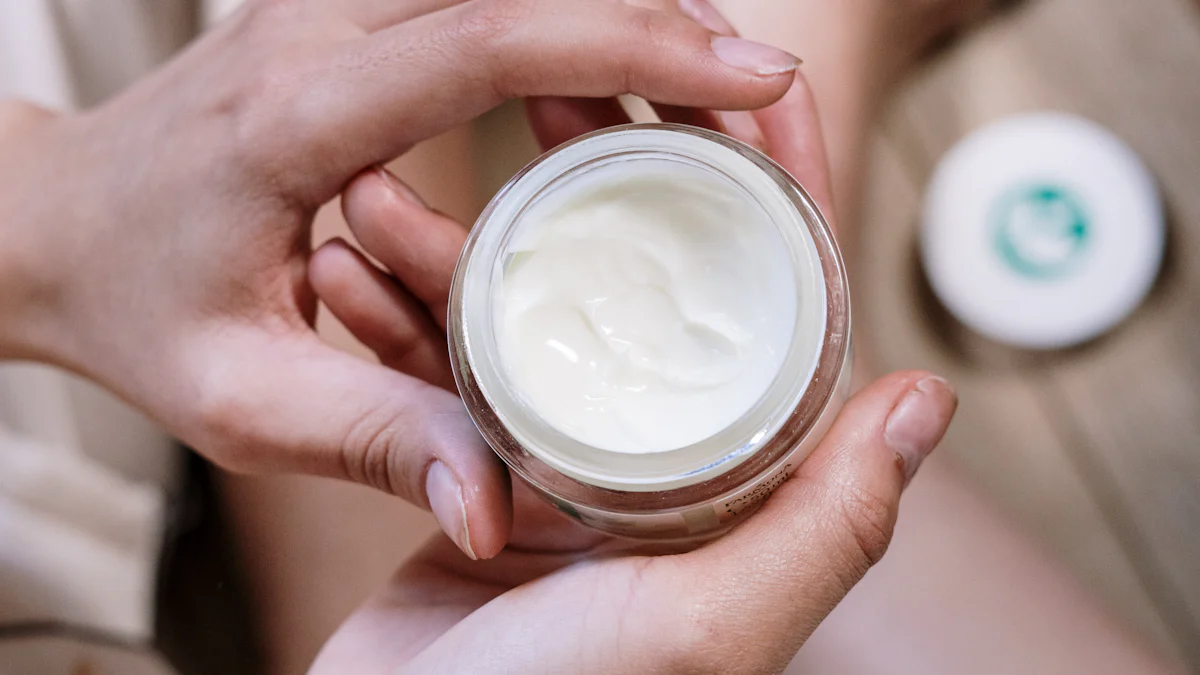
Deep Hydration
Hyaluronic acid delivers intense hydration to your skin, making it feel soft and refreshed. If your skin feels dry or dehydrated, this ingredient works to restore its moisture balance. It acts like a sponge, pulling water into your skin and locking it in place. This process helps your skin regain its natural glow and vitality.
You’ll also notice an improvement in your skin’s texture. By smoothing out rough patches, hyaluronic acid leaves your skin feeling silky and even. This deep hydration transforms your complexion, giving it a healthy and polished appearance.
Anti-Aging Properties
Wrinkles and fine lines can make your skin look tired. Hyaluronic acid minimizes their appearance by plumping up your skin with moisture. It fills in those creases, giving your face a smoother and more youthful look. You’ll see the difference as your skin feels firmer and more elastic.
This ingredient also promotes a radiant complexion. By keeping your skin hydrated, it enhances its natural glow. Your face will look brighter and more vibrant, helping you feel confident and refreshed every day.
Strengthened Skin Barrier
Your skin barrier plays a crucial role in protecting you from environmental stressors. Hyaluronic acid strengthens this barrier, making it more resilient. It helps your skin retain moisture while shielding it from irritants like pollution and harsh weather. This protection keeps your skin healthy and balanced.
If you struggle with redness or irritation, hyaluronic acid can help. Its soothing properties calm your skin, reducing discomfort and inflammation. Over time, your skin will feel stronger and more comfortable, allowing you to enjoy a clear and even complexion.
How to Use Hyaluronic Acid in Your Skincare Routine
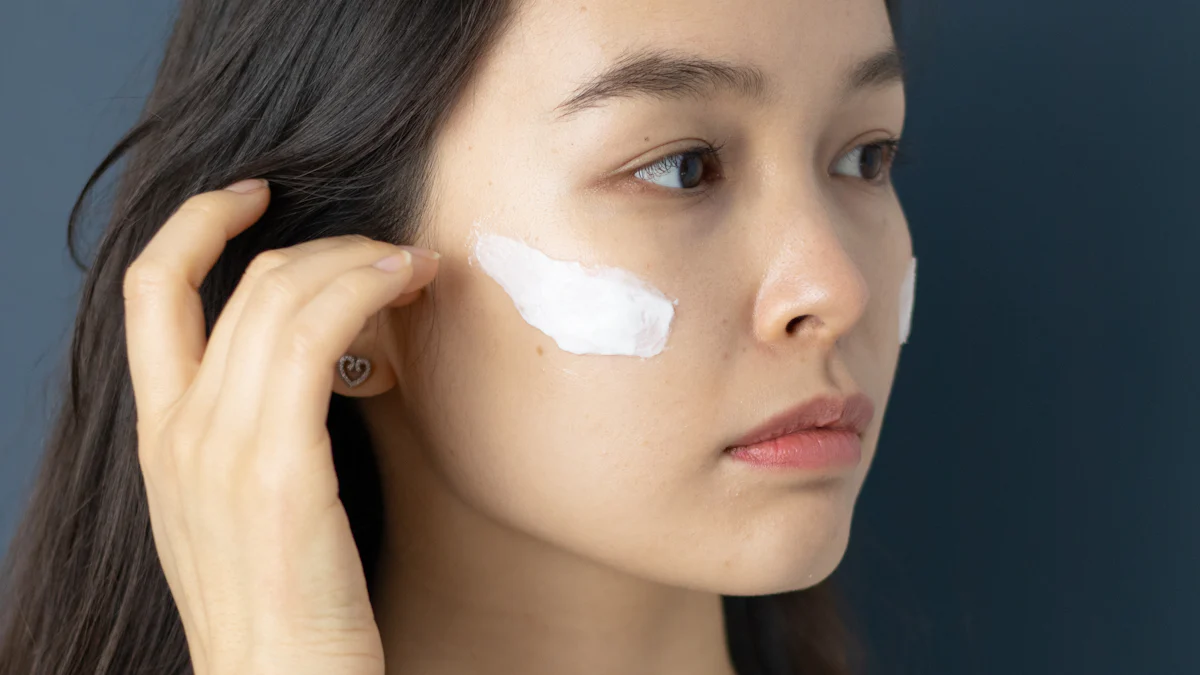
Selecting the Right Products
Finding the right product with hyaluronic acid can make a big difference in your skincare routine. You’ll want to start by exploring serums, moisturizers, and masks that feature this ingredient. Serums often deliver a concentrated dose of hydration, while moisturizers lock in that moisture for long-lasting effects. Masks, on the other hand, provide an extra boost when your skin feels particularly dry or dull.
When choosing a product, look for formulas that include complementary ingredients. Niacinamide pairs well with hyaluronic acid to brighten your skin and improve its texture. Peptides are another great addition, as they help support your skin’s elasticity and firmness. These combinations enhance the benefits of hyaluronic acid, giving you even better results.
Application Techniques
How you apply hyaluronic acid matters just as much as the product you choose. Always apply it to damp skin. This step helps the ingredient pull in water more effectively, maximizing hydration. After cleansing your face, pat it gently with a towel but leave it slightly moist. Then, apply your hyaluronic acid product to lock in that water.
For even better results, layer it with other hydrating products. Start with the lightest formula, like a serum, and follow up with a heavier moisturizer. This layering technique creates a hydration barrier, keeping your skin soft and plump throughout the day. Don’t forget to finish with sunscreen in the morning to protect your skin from UV damage.
Compatibility with Other Ingredients
Hyaluronic acid works well with most skincare ingredients, making it easy to incorporate into your routine. You can safely use it alongside active ingredients like vitamin C, retinol, and ceramides. Vitamin C brightens your complexion, retinol targets fine lines, and ceramides strengthen your skin barrier. Together, these ingredients create a powerful combination for healthy, glowing skin.
If you’re layering products, apply hyaluronic acid first. Its lightweight texture allows it to absorb quickly, preparing your skin for the next steps. This compatibility makes it a versatile choice for any skincare routine, whether you’re focusing on hydration, anti-aging, or overall skin health.
Is Hyaluronic Acid Safe for All Skin Types?
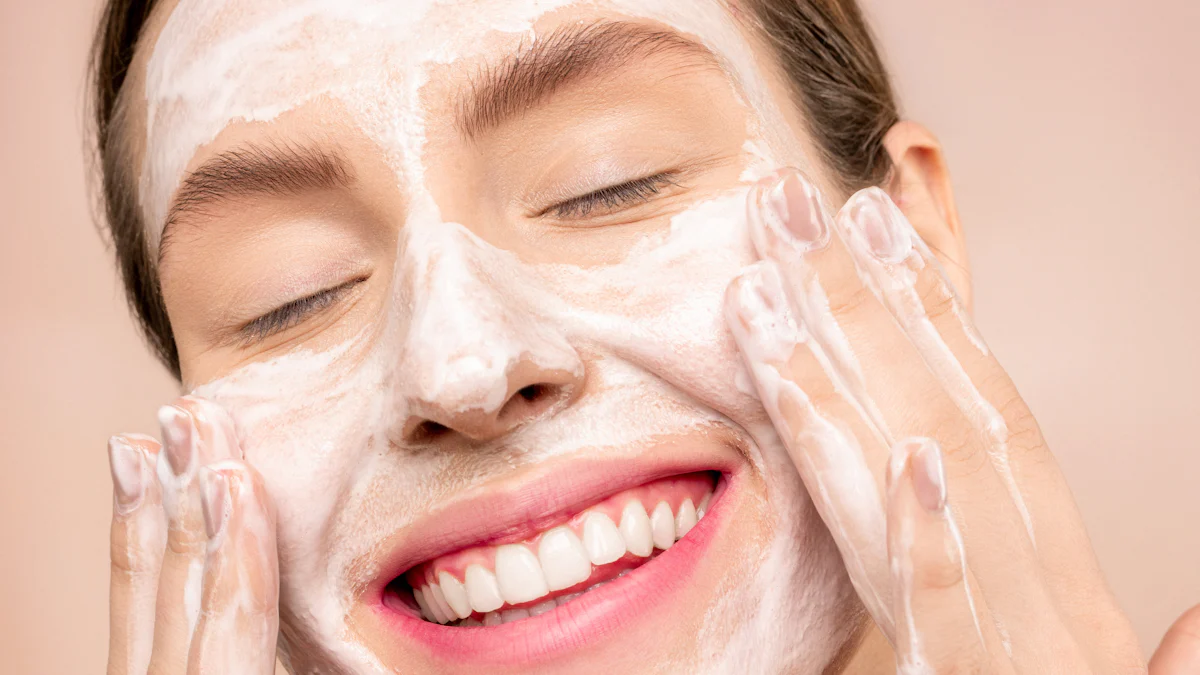
Addressing Safety Concerns
Suitable for sensitive, oily, and dry skin
Hyaluronic acid is one of the most versatile skincare ingredients out there. It works well for all skin types, including sensitive, oily, and dry skin. If your skin tends to react to new products, you’ll be glad to know that hyaluronic acid is gentle and non-irritating. It hydrates without clogging pores, making it a great option even if you have acne-prone or oily skin.
For dry skin, it’s a lifesaver. It replenishes moisture and helps your skin feel soft and smooth. Sensitive skin benefits from its soothing properties, which calm redness and irritation. No matter your skin type, hyaluronic acid adapts to your needs, delivering hydration where it’s needed most.
Rarely causes irritation or adverse reactions
You don’t have to worry about hyaluronic acid causing irritation. It’s a naturally occurring molecule in your body, so your skin recognizes it and absorbs it easily. Most people tolerate it well, even those with highly reactive skin. Adverse reactions are rare, making it a safe choice for nearly everyone.
If you’re trying it for the first time, start with a patch test. Apply a small amount to your wrist or behind your ear and wait 24 hours. This step ensures your skin responds positively before you use it on your face. Once you’re confident, you can enjoy its benefits without hesitation.
Potential Side Effects
Overuse in low-humidity environments may cause dryness
While hyaluronic acid is incredibly effective, using it incorrectly can lead to dryness. In low-humidity environments, it may pull moisture from the deeper layers of your skin instead of the air. This can leave your skin feeling tight or dehydrated. To avoid this, always apply it to damp skin and follow up with a moisturizer. This seals in hydration and prevents any unwanted dryness.
If you live in an area with dry air, consider using a humidifier. It adds moisture to your environment, helping hyaluronic acid work more effectively. These small adjustments ensure you get the best results without any downsides.
Importance of following product instructions
Every skincare product comes with instructions for a reason. Following them ensures you use hyaluronic acid safely and effectively. Pay attention to how much you’re applying and how often. Overusing it won’t give you better results—it might even disrupt your skin’s balance.
Stick to the recommended amount and frequency. If the product suggests layering with other ingredients, follow that advice for optimal results. By using hyaluronic acid as directed, you’ll enjoy hydrated, healthy skin without any complications.
Hyaluronic acid has truly transformed the way you can care for your skin. It boosts hydration, enhances elasticity, and supports overall skin health. By adding it to your routine, you’ll notice smoother, more radiant, and youthful-looking skin. Whether you’re tackling dryness or aiming for a glowing complexion, this ingredient delivers results. Take the next step in your skincare journey. Explore products with hyaluronic acid today and experience the difference it can make for your skin.
FAQ
What makes hyaluronic acid different from other hydrating ingredients?
Hyaluronic acid stands out because of its ability to hold up to 1,000 times its weight in water. This unique property allows it to deliver intense hydration without feeling heavy or greasy. Unlike some moisturizers that sit on the surface, hyaluronic acid penetrates your skin, providing hydration at deeper levels. It works for all skin types and adapts to your skin’s specific needs.
Can I use hyaluronic acid every day?
Yes, you can use hyaluronic acid daily. It’s gentle enough for everyday use and works well in both morning and evening routines. For best results, apply it to damp skin and follow up with a moisturizer to lock in hydration. If you’re new to it, start with once a day and gradually increase to twice daily if your skin responds well.
Does hyaluronic acid work for oily or acne-prone skin?
Absolutely! Hyaluronic acid hydrates without clogging pores, making it ideal for oily or acne-prone skin. It balances your skin’s moisture levels, which can help reduce excess oil production. Its lightweight texture absorbs quickly, leaving your skin feeling refreshed and hydrated without any greasy residue.
Should I apply hyaluronic acid before or after moisturizer?
Apply hyaluronic acid before your moisturizer. Its lightweight formula absorbs quickly and prepares your skin to lock in hydration. After cleansing, apply it to damp skin, then follow up with a moisturizer to seal in the moisture. This layering technique ensures your skin stays hydrated throughout the day.
Can I combine hyaluronic acid with other skincare ingredients?
Yes, hyaluronic acid pairs well with most skincare ingredients. You can safely use it with vitamin C, retinol, niacinamide, and ceramides. These combinations enhance your routine by targeting multiple skin concerns. For example, vitamin C brightens your skin, while hyaluronic acid hydrates it. Always apply hyaluronic acid first to maximize absorption.
How long does it take to see results with hyaluronic acid?
You’ll notice immediate hydration after the first use. Your skin will feel softer and more refreshed. Over time, with consistent use, you’ll see improvements in elasticity, texture, and overall radiance. For anti-aging benefits like reduced fine lines, give it a few weeks of regular application.
Is hyaluronic acid safe for sensitive skin?
Yes, hyaluronic acid is gentle and safe for sensitive skin. It soothes irritation and reduces redness, making it a great choice for those with reactive skin. If you’re trying it for the first time, do a patch test to ensure your skin tolerates it well. Once you’re confident, incorporate it into your routine without worry.
Can hyaluronic acid cause dryness in certain conditions?
In low-humidity environments, hyaluronic acid might pull moisture from deeper layers of your skin instead of the air. This can lead to dryness. To prevent this, always apply it to damp skin and follow with a moisturizer. Using a humidifier can also help maintain the right environment for hyaluronic acid to work effectively.
What’s the best way to store hyaluronic acid products?
Store hyaluronic acid products in a cool, dry place away from direct sunlight. Extreme heat or light can degrade the formula, reducing its effectiveness. Keep the container tightly sealed to prevent contamination. Proper storage ensures your product stays fresh and delivers the best results.
Can I use hyaluronic acid if I have rosacea or eczema?
Yes, hyaluronic acid is often recommended for conditions like rosacea or eczema. Its hydrating and soothing properties help calm inflammation and strengthen your skin barrier. However, choose a product with minimal additives or fragrances to avoid potential irritation. Consult a dermatologist if you’re unsure about adding it to your routine.
Post time: Dec-30-2024

